MS-LS4-6
Use mathematical representations to support explanations of how natural selection may lead to increases and decreases of specific traits in populations over time.
-
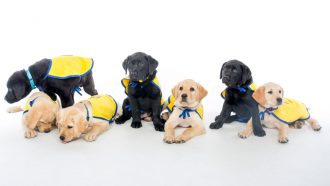 Life
LifeEven raised by people, wolves don’t tune into you like your dog
Dog puppies outpace wolf pups at engaging with humans, even with less exposure to people, supporting the idea that domestication changed dogs’ brains.
-
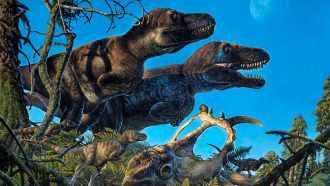 Fossils
FossilsDinosaur families appear to have lived in the Arctic year-round
Fossils of baby dinosaurs in northern Alaska challenge the idea that northern dinosaurs only spent their summers in the high Arctic.
By Nikk Ogasa -
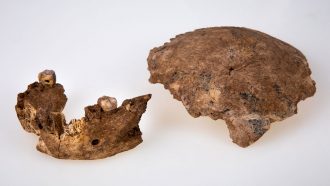 Archaeology
ArchaeologyFossils unearthed in Israel reveal possible new human ancestor
They come from a previously unknown Stone Age group that may represent a complex mashup of early members of our genus Homo.
By Bruce Bower -
 Health & Medicine
Health & MedicineWill we all need COVID-19 booster shots?
Experts say not yet, but booster vaccines may be coming as new SARS-CoV-2 virus variants keep emerging.
-
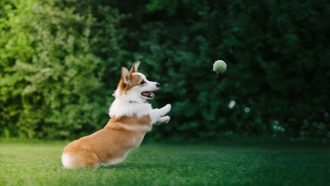 Life
LifeLet’s learn about dogs
From learning the names of their toys to sniffing out viruses in human sweat, dogs are far more than household pets.
-
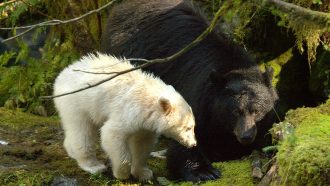 Animals
AnimalsScience and Indigenous history team up to help spirit bears
When scientists and Indigenous people work together, their efforts can benefit bears and people.
-
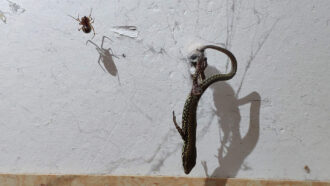
Tiny spider uses silk to lift prey 50 times its own weight
Dropping the right silk let’s a spider haul mice, lizards and other giants up off the ground.
By Susan Milius -
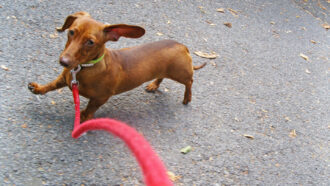 Archaeology
ArchaeologyHarsh Ice Age winters may have helped turn wolves into dogs
In the Ice Age, Arctic hunters may have turned to some game for their fatty bones. Much of those animals’ meat might have been left to domesticate dogs.
By Bruce Bower -
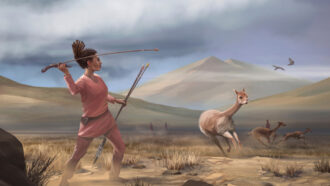 Archaeology
ArchaeologyThis prehistoric woman from Peru hunted big game
Women in the Americas speared large prey as early as 9,000 years ago, new archaeological evidence suggests.
By Bruce Bower -
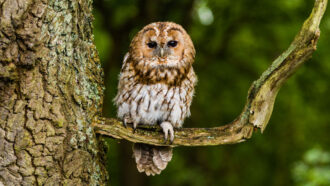 Genetics
GeneticsScientists Say: Evolution
Evolution is how species change over time. Individuals in the group vary, and some will pass on their genes. Over time, the whole species changes.
-
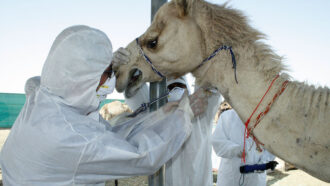 Health & Medicine
Health & MedicineWhen physicians and veterinarians team up, all species benefit
When doctors for people and those for animals share their expertise, they can discover new ways to take better medical care of all species.
By Liz Devitt -
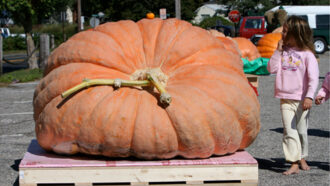 Plants
PlantsHere’s how giant pumpkins get so big
Cinderella took a ride in a pumpkin coach. Though real pumpkins do get big enough, here’s why their ride would be uncomfortable at best.